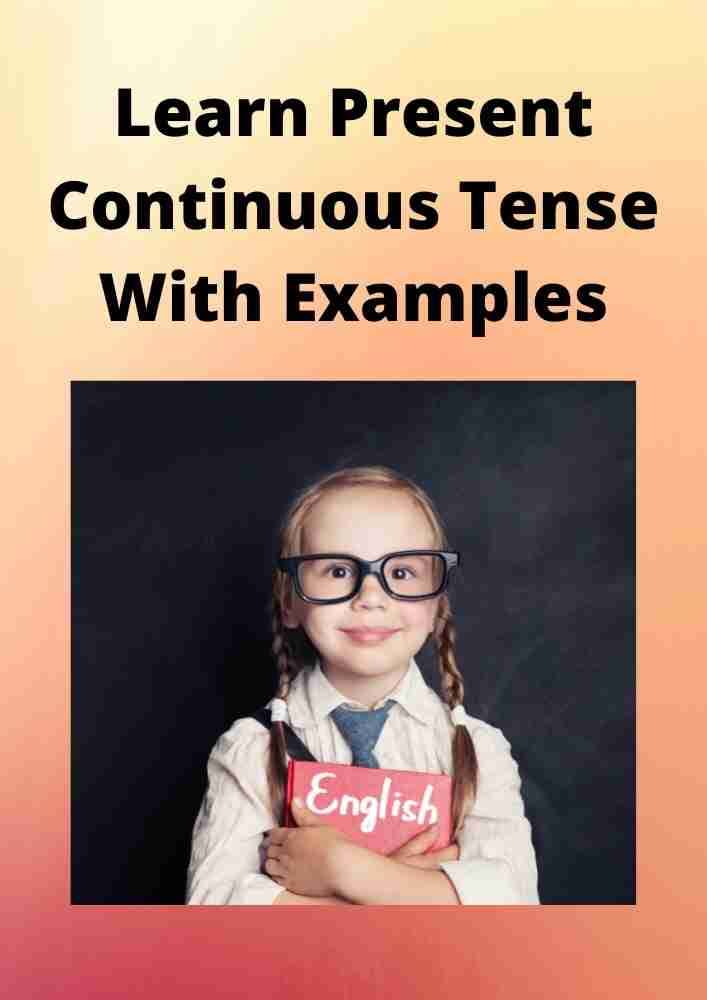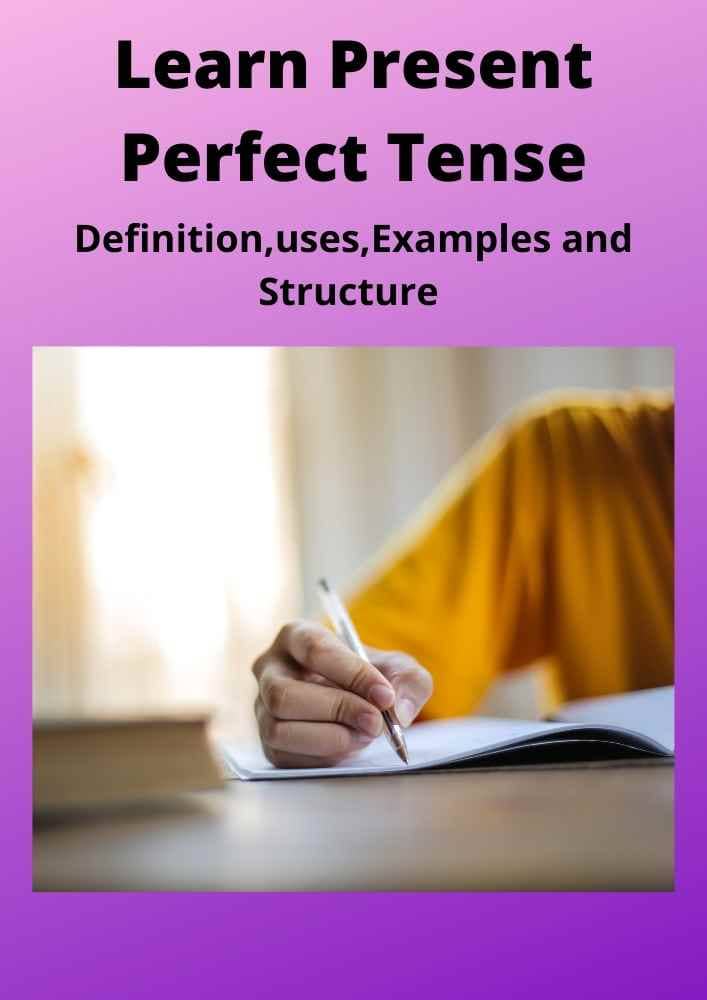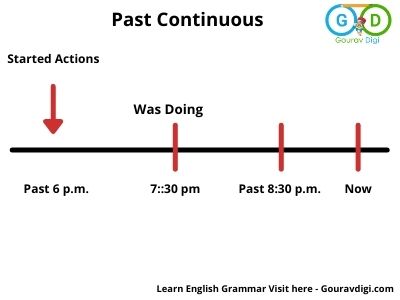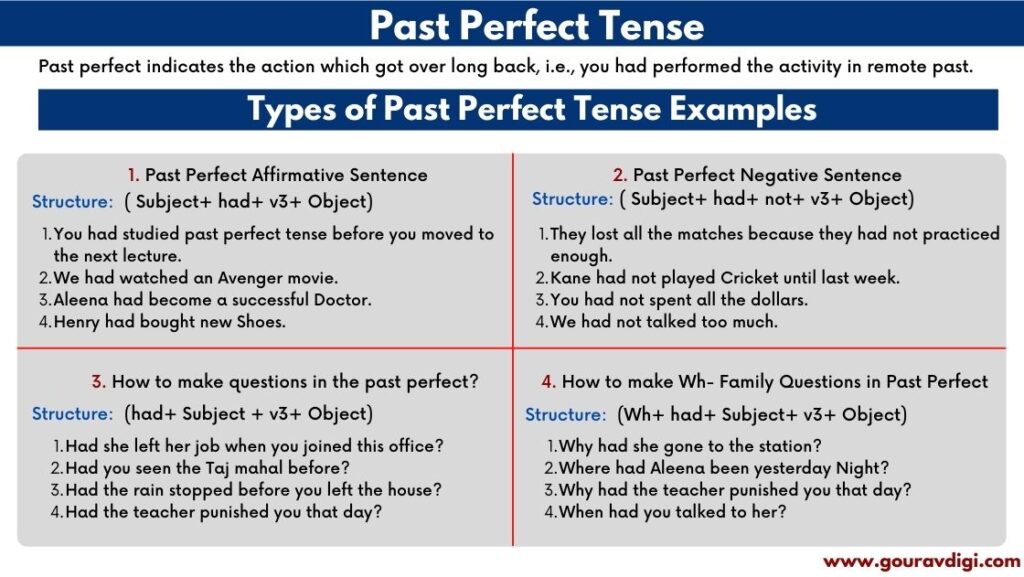Simple Present Tense Definition and Examples
Learn English Grammar Simple Present Tense Definition and Examples uses with us.
What is the Simple present Tense?
Actions that occur in the present i.e. at the time of our talking or performing an action that is called simple present tense. It is used to describe Habits, Daily Routine, Nature, universal truths or facts, Fixed arrangements, instructions, or Directions. Main Verb used in this tense is V1 ( First Form Of the Verb).
The words which denote the routine or regular activities are:
Every day, Every week, Every year, Never, Ever, Once a week, twice a week, rarely, Every Winter, Every Month, Usually, often, Frequently, Generally, Sometimes.
Uses and Examples of Simple Present Tense Sentences:
1. For Habits:
Alisha always Speaks lies.
Shaina Bites her nails.
They drink milk at the dinner time.
2.For Routine:
I get up early in the morning every day.
Aliena Plays Badminton every week.
They do exercise every day.
3.To Talk of Nature:
Preeti Does not make friends easily.
I don’t Like Fake Friends.
They feel shy while talking with strangers.
We don’t like to use smartphones.
4.Universal Truths or facts:
The Stars Shine at night.
Trees give us oxygen.
Five or Five make Ten.
5.Fixed Arrangements:
Virat Kohli Plays fantastic against New Zealand.
The Week starts on Monday.
Shopping Malls Start offers at festivals.
6. For Instructions or Directions.
Stand up and go away.
First, boil the water at 100 Degree Celcius and then cook the noodles.
Wash Your Hands first and then eat the food.
Go straight and then take right you get highway.
How to make simple present Sentences:
Use this structure (Subject+Auxiliary verb+Main Verb)
|
Subject |
Simple Present with (Auxiliary Verb ) |
Main Verb (Use First Form of the Verb) in this tense V1 |
| I, we, you, they, and (plural) | DO | eg:- Speak, Walk, play, etc. (V1) |
| He, She, It and (Singular) | DOES | (V1) |
There Are Three Important Tips for making Simple Present
1. We Don’t Use the Auxiliary verb with the Simple Present Positive Sentences. Only we use the main verb with the subject in these sentences.
for Example:- We play hockey every day. (Play is the Main Verb Here not an Auxiliary verb).
2. For the 3rd Person Singular (He, she, it), We add s to the Main Verb or es to the auxiliary Verb.
for Example:- He Goes gym every day. (Go is the main verb here and we add es with it).
She takes healthy Dite. (Take is the main verb here and we add s with it).
3. For the Verb to be, do not use an auxiliary verb, Even For questions and Negatives.
For Example:- We are usually at home on Monday Night.
Forming the Simple Present Tense:
| Forms | Formula (Plural) | Formula(Singular) |
| + | S+v1 | S + v1 + s/es |
| – | S+ Do not+v1 | S + Does not+v1 |
| ? | Do+ S+ v1 | Does + S+ v1 |
| -? | Do not+ Sub+ V1 | Does not+ Sub+ V1 |
Sentences With Simple Present Tense:
(+) Affirmative Sentences
Examples:
- She Cooks Tasty Dishes.
- He writes stories for his friend.
- We Listen to English Songs.
- They play football every Sunday.
- You Learn English Grammar.
Do and Does are used in affirmative Sentences along with V1 to give more emphasis or Stress to the statement. For Example-
For the Question – Does Virat Kohli Play Well?
You Can Answer – Yes, Virat Kohli Plays well.
And to give it more emphasis or stress you can say – Yes, of course! Virat Kohli does Play very well.
Understand the Difference Between I go for playing cricket every morning and I do go for playing Cricket every morning.
(-) Negative Sentences
Examples:
- He doesn’t play Tennis.
- She doesn’t talk to him.
- We don’t speak lies.
- They don’t run fast at the Ground.
- I don’t talk to my friends.
(?) Interrogative Sentences
Use Do or Does at the beginning of the Interrogative Sentence along with V1.
Examples:
- Does He Make Good Friends?
- Do you know everything about her?
- Does She Read the book in the Night?
- Do they talk too much?
- Do we come late always at the party?
Note: The answer to these questions will always start with ‘yes’ or ‘No’.
(-?) Negative Interrogative Sentences
Use Do not or Does not at the beginning of Negative Interrogative Sentences.
Examples:
- Don’t you talk to your friends?
- Don’t we play football on Sunday?
- Doesn’t She Cook tasty Dishes?
- Doesn’t He watch Cartoons every day?
- Don’t I think too much?
Simple Present Tense Wh- Family Question
| Formula | Wh+H.V (Helping verb)+Sub+V1+O? |
- What do you do?
- When does He read Simple Present Tense?
- How Do you speak English Fluently?
- Why does she eat junk food Daily?
- Where do you go after eating Dinner?
Negative Simple Present tense Wh- Family Question
| Formula | Wh+H.V (Helping verb)+not+Sub+V1+O? |
- Why Don’t You understand me?
- When Doesn’t he read simple present Tense?
- Why Doesn’t she make Good Friends?
- How don’t you talk to her?
- Where don’t we miss them?






